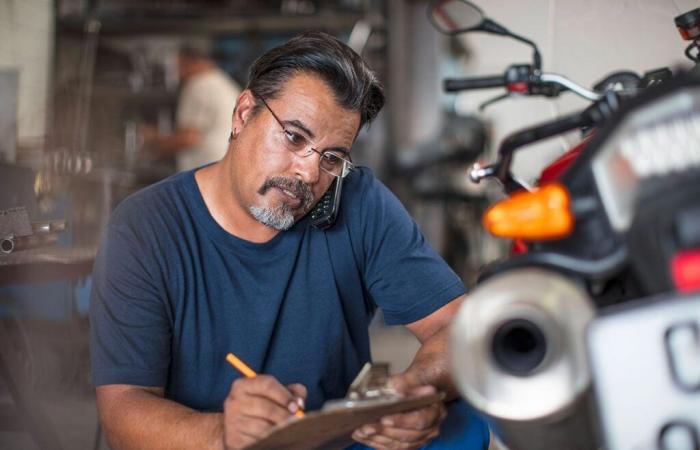The compulsory technical inspection for two-wheelersintroduced at the beginning of the year, sparked a wave of discontent among French bikers. Many owners find themselves unfairly failed, despite vehicles in perfect condition. This alarming situation pushes the French Federation of Angry Bikers (FFMC) to react and mobilize its troops.
The motorcycle technical inspection controversy intensifies
Since its entry into force, the two-wheel technical inspection has been the subject of strong criticism. Hundreds of motorcyclists complain of repeated failures during pollution tests, despite perfectly compliant and maintained motorcycles. These unjustified counter-visits result in additional costs for owners, fueling their frustration.
The situation is all the more worrying because even after carrying out repairs or adjustments, such as replacing the catalytic converter, many motorcyclists still encounter refusals during counter-inspections. This inconsistency raises questions about the reliability of control procedures and the relevance of the criteria applied.
Faced with what resembles a growing scandalthe FFMC has decided to take the lead. The organization is calling on the motorcyclists concerned to testify via an online questionnaire, with the aim of collecting tangible evidence of these malfunctions. This approach aims to highlight possible flaws in the motorcycle technical inspection system.
Actions and mobilization of bikers in the face of injustice
The FFMC does not just collect testimonies. She also hired a legal battle by filing an appeal before the Council of State. The objective is clear: obtain a review of the legislation surrounding the technical inspection of motorized two-wheelers (CT2RM). This initiative is part of a broader strategy aimed at contesting the legitimacy and effectiveness of this controversial measure.
At the same time, the organization is preparing a large-scale event for September 21 and 22. This event, described as “original” by the FFMC, aims to bring together as many bikers as possible and make their voices heard. The scale of this mobilization could well exert significant pressure on the authorities.
Here are the main actions carried out by the FFMC:
- Collection of testimonials via an online questionnaire
- Filing an appeal before the Council of State
- Organization of a national event on September 21 and 22
- Raising public and media awareness of the issue
Impacts and perspectives for bikers
The consequences of these unjustified technical controls are multiple for bikers. Beyond the financial aspect, an entire community feels stigmatized and unfairly targeted. This situation could have repercussions on motorcycling in France, potentially discouraging new enthusiasts.
It is central to note that this problem is part of a broader context of new regulations on technical inspections, which also affect motorists. Bikers fear these measures are only a first step towards tougher restrictions.
The table below summarizes the main points of friction between motorcyclists and the new technical inspection:
| Issue | Impact | Bikers' demand |
|---|---|---|
| Unjustified failures in pollution tests | Additional costs, frustration | Review of control criteria |
| Lack of transparency of procedures | Distrust of control centers | Clarification of evaluation methods |
| Feeling of stigma | Demotivation of practitioners | Recognition of the specificity of two-wheelers |
Faced with this situation, bikers remain vigilant and wonder about the future. Some fear that these checks are only a prelude to other restrictive measures, such as the installation of on-board cameras to monitor their behavior on the road.
The outcome of this standoff between the biker community and the authorities remains uncertain. Nevertheless, the scale of the mobilization and the determination of the FFMC suggest that this debate on motorcycle technical inspection is far from closed. The next few months will be crucial to determine whether adjustments will be made to this controversial measure, or whether bikers will have to adapt to this new reality, despite their protests.
In a context where road safety is being strengthened with more efficient radars, motorcyclists hope that their voice will be heard to find a fair balance between safety and freedom of movement. The new 2025 technical inspection regulations could be an opportunity to review certain criteria and adapt the procedures to the specificities of two-wheelers.






